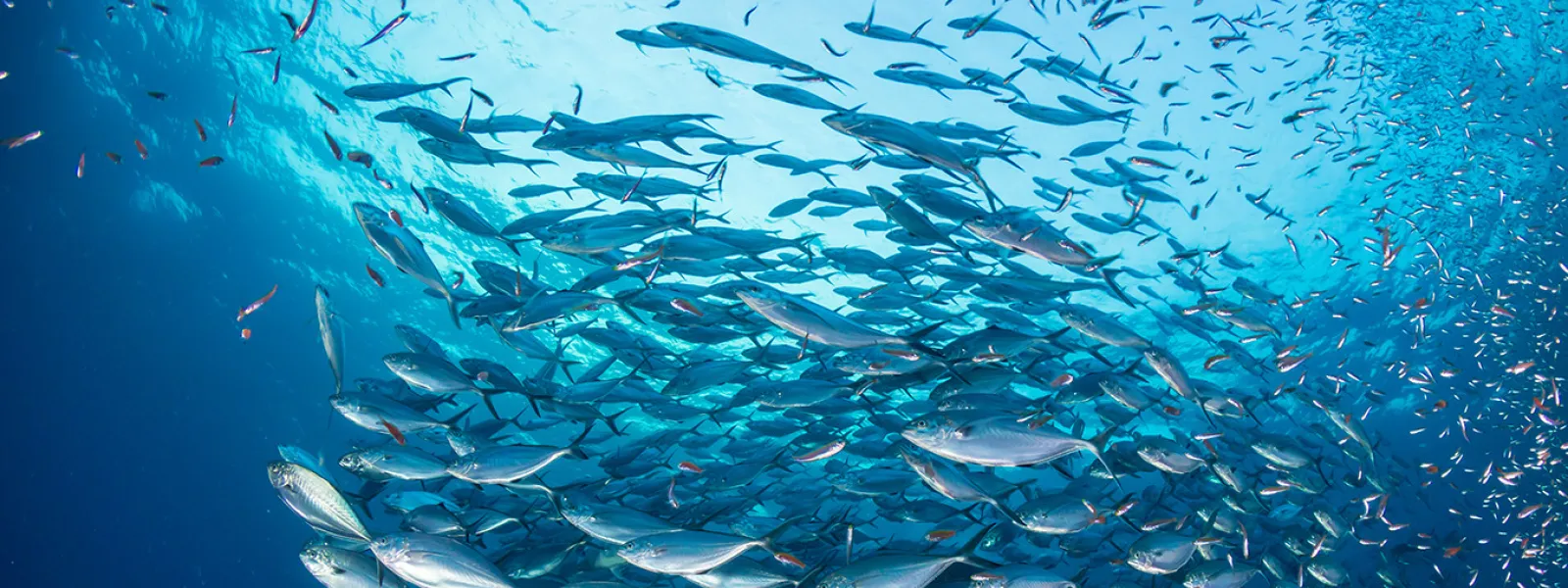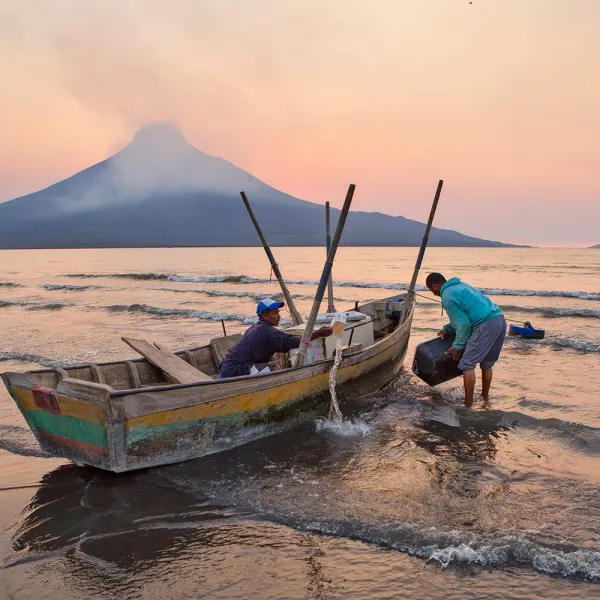
Project
ShutterstockTowards an end to subsidies that promote overfishing
Overfishing is one of the main problems for the health of our ocean. And the provision of negative subsidies to the fishing sector is one of the fundamental causes of overfishing.
Fishing subsidies are financial contributions, direct or indirect, that public entities grant to the industry.
Depending on their impacts, they can be beneficial when they promote the growth of fish stocks through conservation and fishery resource management tools. And they are considered negative or detrimental when they promote overfishing with support for, for example, increasing the catch capacity of a fishing fleet.
It is estimated that every year, governments spend approximately 22 billion dollars in negative subsidies to compensate costs for fuel, fishing gear and vessel improvements, among others.
Recent data show that, as a result of this support, 63% of fish stocks worldwide must be rebuilt and 34% are fished at "biologically unsustainable" levels.
Although negotiations on fisheries subsidies, within the framework of the World Trade Organization, officially began in 2001, it was not until the 2017 WTO Ministerial Conference that countries committed to taking action to reach an agreement.
This finally happened in June 2022, when member countries of the World Trade Organization reached, after more than two decades, a binding agreement to curb some harmful fisheries subsidies. It represents a fundamental step toward achieving the effective management of our fisheries resources, as well as toward ensuring global food security and the livelihoods of coastal communities.
The agreement reached at the 12th WTO Ministerial Conference provides for the creation of a global framework to reduce subsidies for illegal, unreported and unregulated fishing; subsidies for fishing overexploited stocks; and subsidies for vessels fishing on the unregulated high seas. It also includes measures aimed at greater transparency and accountability in the way governments support their fisheries sector.
The countries agreed to continue negotiating rules to curb other harmful subsidies, such as those that promote fishing in other countries' waters, overfishing and the overcapacity of a fleet to catch more fish than is sustainable.
If we want to have abundant and healthy fishery resources, it is time to change the way we have conceived fishing until now. We must focus our efforts on creating models of fishery use that allow for long-term conservation.
Partners:

Living beyond our means
An article from Waterkeeper on the valuable ecosystems services provided by coastal mangrove swamps and the threats these face from developers.
Read moreCivil society groups go to Court to defend Panama Bay
Groups submit arguments supporting government’s case for maintaining wildlife refuge. Panama City, Panama — Today, on International Mangrove Day, two civil society organizations announce their legal support for the government of Panama in a lawsuit brought by developers challenging the protected status of Panama Bay. The groups, the Interamerican Association for Environmental Defense (AIDA) and the Centro de Incidencia Ambiental (CIAM), submitted legal briefs detailing national and international legal arguments for upholding environmental protections established by the government in 2009 through a resolution issued by the environmental authority in Panama. The developers who are contesting the law, Panama Bay Development and Compañia Lefevre, are seeking to open the area to development of vast tourism complexes. Extensive tourism in the area would bring devastating environmental impacts to the sensitive ecosystem. The Panama Bay coastline is ringed with miles of pristine mangroves, which provide critical breeding ground for species relied upon by Panama’s fishing industry. Each kilometer of mangrove-covered coastline generates about $100,000 USD for Panama annually. Mangroves also help protect Panama from the effects of global climate change by buffering the coast from increasingly powerful tropical storms and by storing carbon from the atmosphere in their roots. A mangrove forest can sequester 50 times more carbon than a tropical forest of the same size, making mangroves a conservation priority if countries wish to halt catastrophic climate change. The protected area of Panama Bay is roughly 211,000 acres, slightly larger than the land area of New York City. Panama Bay is one of the earth’s most biodiverse places and is an essential habitat for migratory birds and threatened species such as jaguars and loggerhead turtles. “In the face of ever more powerful and dangerous climate-change-driven tropical storms, destroying coastal mangroves is one of the worst things a country like Panama could do,” said Anna Cederstav, Ph.D., staff scientist and co-director of AIDA. According to Sandra Moguel, an attorney for AIDA in Mexico, “Article four of the Constitution of Panama requires the observance of the rules of international law throughout the territory of that country. Obligations under the Ramsar Convention on Wetlands of International Importance and the Convention on Biological Diversity, both of which have been ratified by Panama, should thus be taken into consideration in deciding the challenge against the natural protected area.” "The creation or declaration of a protected area does not constitute expropriation. What it does is protect and guarantee the right to a healthy environment contained in the Panamanian Constitution” said Maria Acuña, CIAM´s legal advisor.
Read more
Mexican Constitution protects human rights
On June 9, 2011, Mexico rewrote history. The Mexican Congress approved revisions that expressly recognize human rights in the national constitution for the first time. The new language requires all authorities to adhere to international human rights treaties Mexico is a signatory to when those treaties are more expansive than the "individual guarantees" currently on the books. As modified, Article 1 of the constitution now recognizes human rights in general and incorporates international law. This means groups such as AIDA and communities in Mexico will have better legal tools for defending the right to a healthy environment or clean drinking water. Or, for example, because indigenous communities’ right to free, prior, and informed consent is granted in international law, Mexico will now have to recognize this right. Moreover, although the Mexican constitution already recognized some rights, enforcement has been difficult. The revision provides additional legal tools and thus raises hopes for enhanced protection of those rights. These constitutional changes came after a four-year process initiated by the UN Office of the High Commissioner for Human Rights in Mexico, and involving academics, nongovernmental organization, and independent experts. AIDA contributed by evaluating existing legal tools for protecting human rights as well as international legal obligations. In 2008, the Mexican Congress started considering the human-rights-related constitutional revision, which was finally partially approved in June, 2011. While the Mexican Congress and government should be applauded for its vision, the constitutional change’s effectiveness remains to be seen. Recognizing human rights is only the first step, and the new commitment will mean little without compliance. In coordination with our allies in the country, AIDA will monitor Mexican cases to ensure enforcement of this profound advancement and improved protection of the right to a healthy environment.
Read more